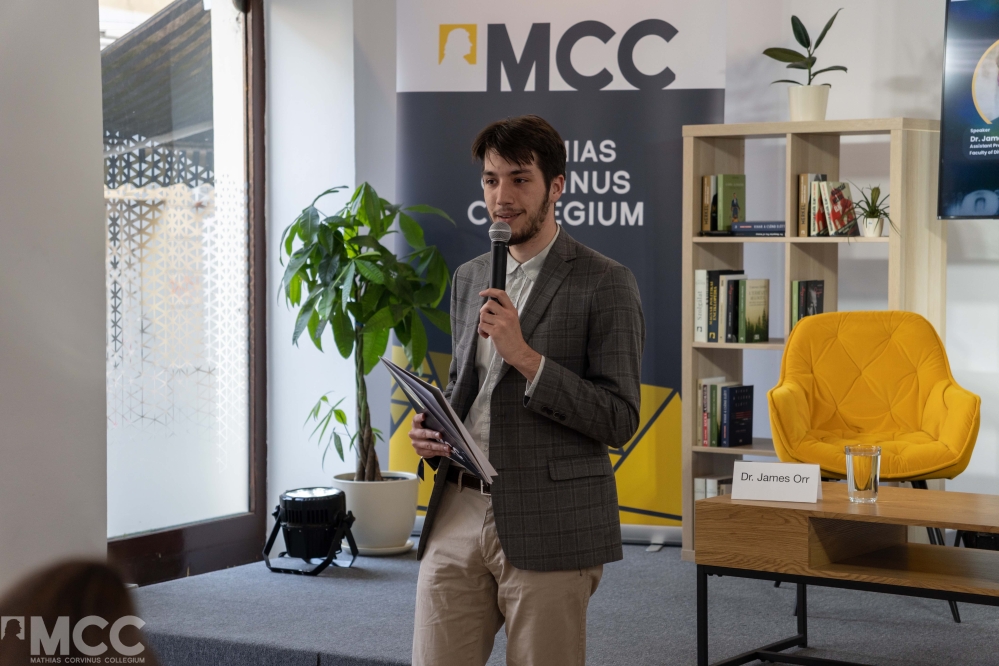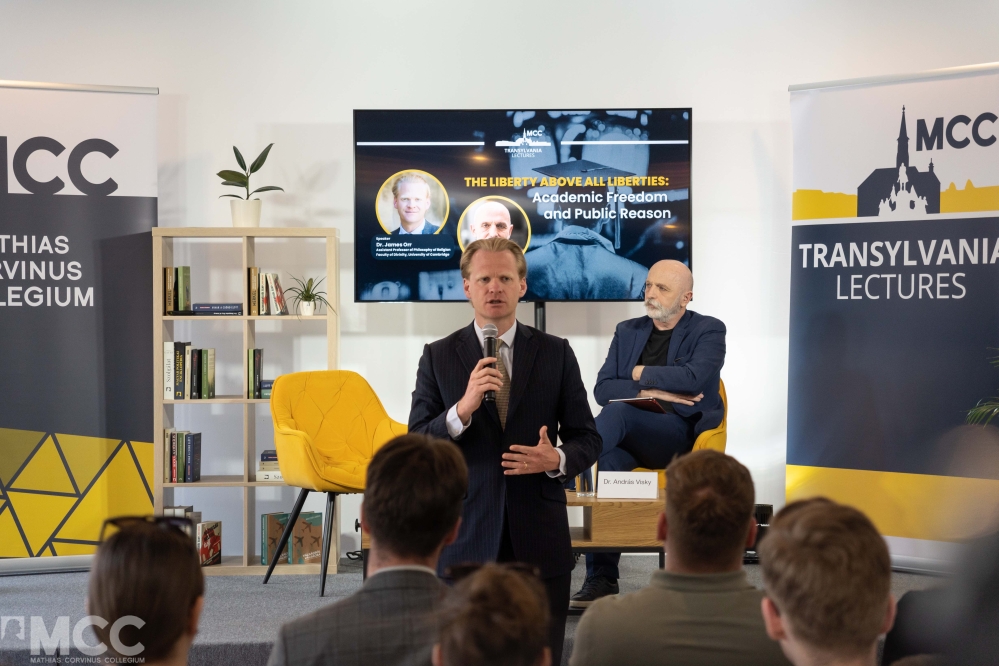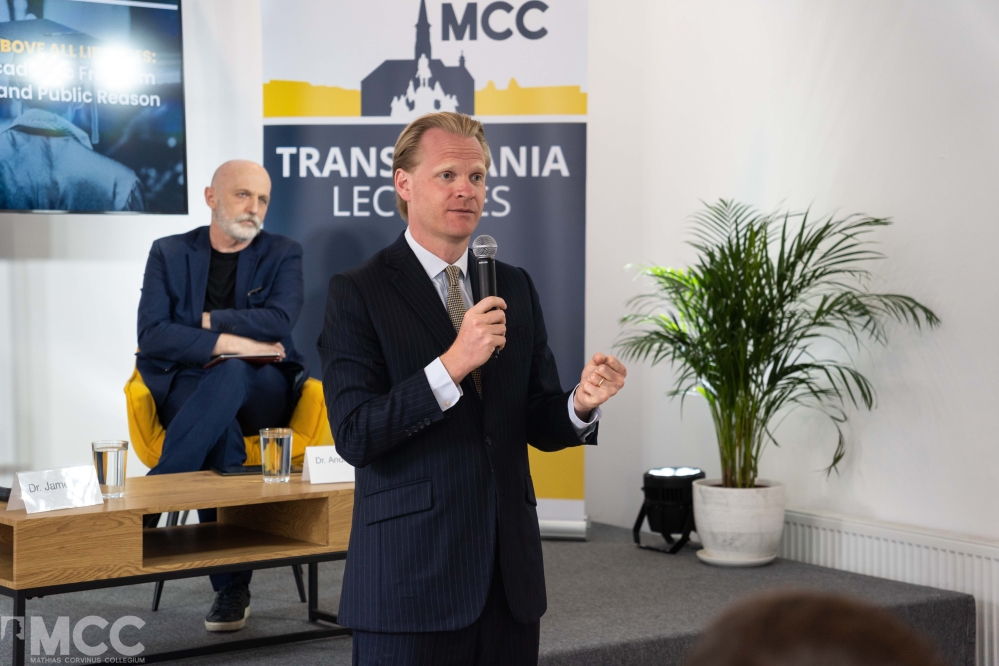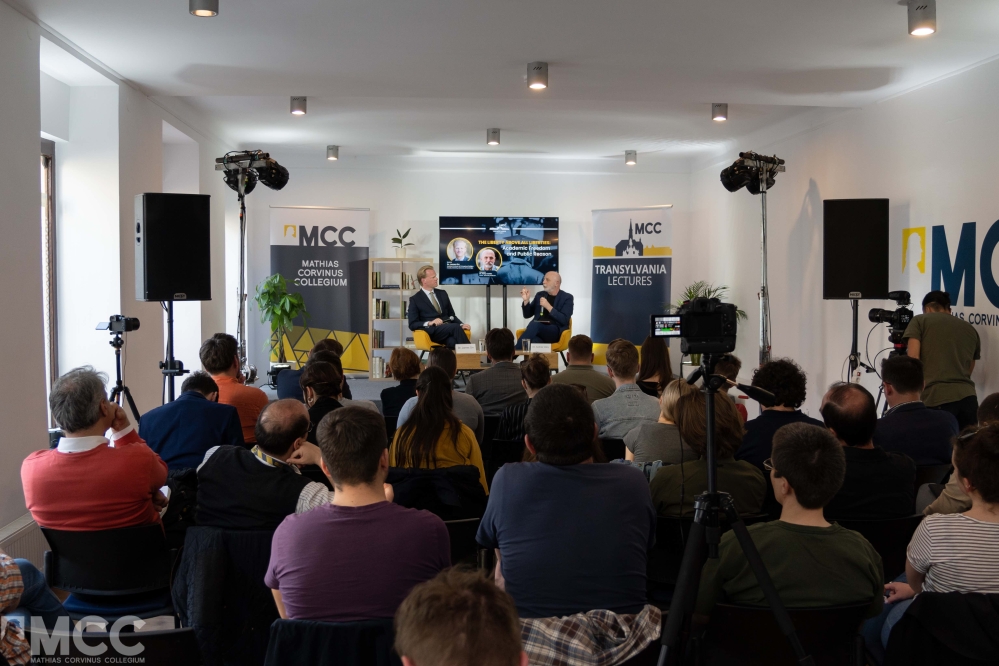Reading time: 3 minutes
The invited speaker of the Transylvania Lectures’ event in May was Dr James Orr, an expert in ethics and philosophy of religion, and Assistant Professor of Philosophy of Religion at the Faculty of Divinity, University of Cambridge. At the event on Monday, 2nd of May, the speaker discussed the limits of academic freedom, its impact on the public interest and identity politics in Western institutions with Dr András Visky.
At the lecture titled Liberty Above All Liberties: Academic Freedom and Public Reason our guest speaker shared his thoughts on the topic and answered the audience’s questions in the MCC’s Regional Center in Kolozsvár (Cluj-Napoca). Dr James Orr is an Assistant Professor of Philosophy of Religion at the Faculty of Divinity, University of Cambridge. He is actively engaged in a range of policy debates in the public square, including freedom of conscience and belief, academic freedom and freedom of speech, patriotism and nationhood, and bioethical issues arising at the beginning and end of human life. The moderator of the discussion was Dr András Visky playwright, dramaturg, Professor of Performance Studies (Babeş-Bolyai University, Károli Gáspár University), Artistic Director of the Hungarian Theatre of Cluj
The lecturer started from the long-standing premise of liberalism that academic freedom is the enabling condition for universities to contribute to the commonweal through facilitating the flow of public reason by means of the preservation, propagation, and pursuit of truth. He pointed out that academic freedom is in fact a professional version of freedom of expression. Even the ancient Greeks understood that progress required diversity of opinion, a friction of opinions between people seeking the truth.
Dr James Orr said: the mission of a good university is to preserve, seek and disseminate the truth. It is important to preserve old knowledge, but also to seek new ways of doing things, while allowing the younger generation to test our vision of truth. And although there are collective decisions, plans and guidelines, academic institutions cannot dictate the framework and the subject of an academic researcher's research. In this way, they can avoid stagnation, and the community can take new initiatives, and science can develop.
However, an alarming situation has emerged in Western universities: a number of research shows that there are huge differences in political engagement, ideological positions, and on difficult issues. Institutions do not restrict freedom of speech, but under public pressure, modern identity politics is beginning to have a negative impact in these circles too. It is difficult and painful to discuss views on identity, as these are issues that go to the heart of individuals, and it is easy to portray disagreement as persecution. The proliferation of identity politics is also linked to capitalist dynamics, but taking care of the victims and concern for the excluded has Christian roots. This becomes a problem when victim status gives people political advantages and it becomes profitable to take on a victim role, or even to abuse it.
The speaker said that governments should not interfere in the operation of universities, but there may come a point when they need to externally define the mission of universities in the interest of the public good, the wider community, so that they continue to serve the public good. James Orr argues that institutions committed to intellectual flourishing should regard academic freedom as the most important of all freedoms.
"I am glad that this spring we have been able to organize more and more public events not only in the MCC center in Kolozsvár, but also in several cities in Transylvania. And the Transylvania Lectures series is outstanding, because through the MCC we are able to host distinguished academics who meet our students and the members of the local community", said Botond Talpas, general director of MCC Transylvania. For more information on current events and news, please visit the organization’s Facebook page.



